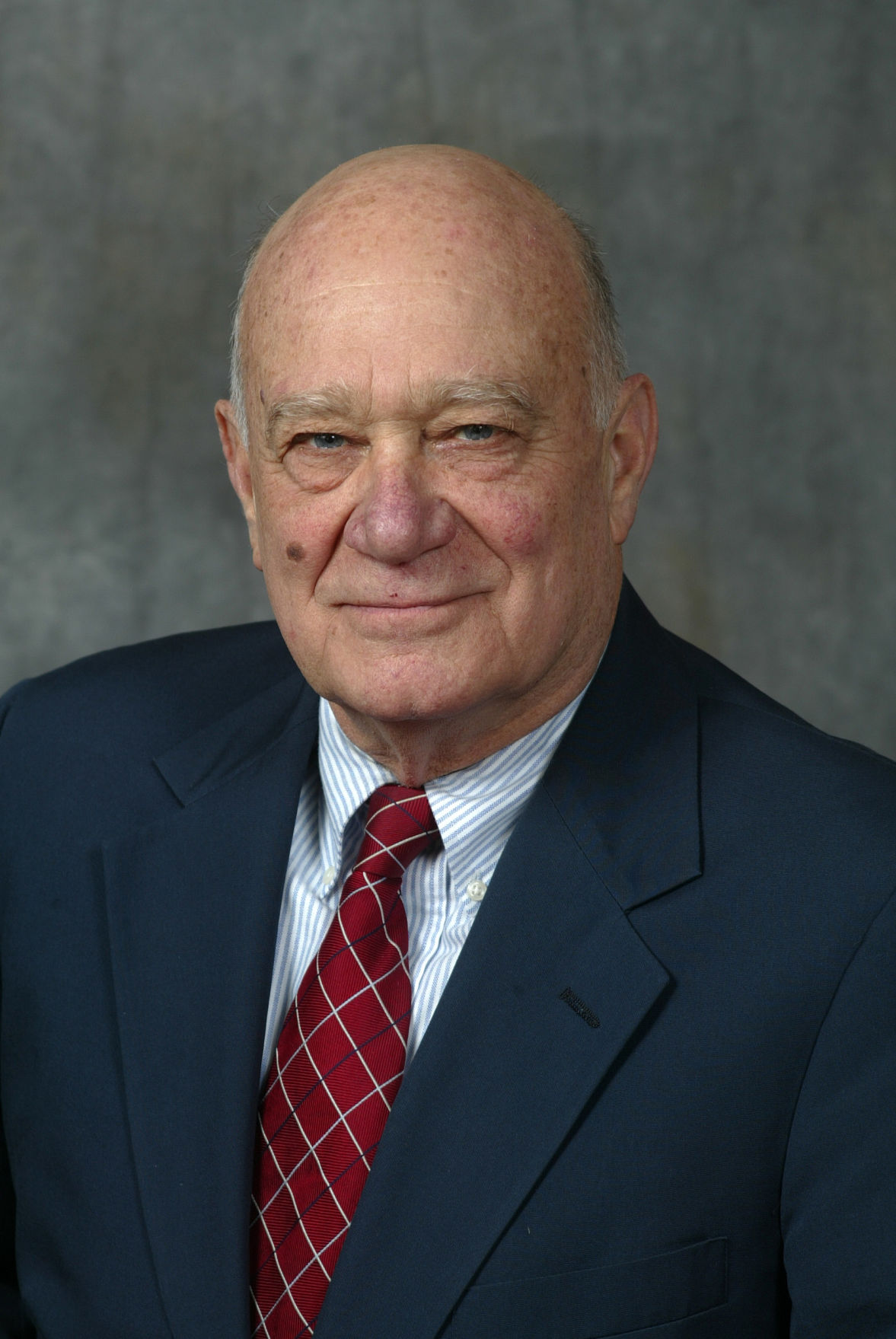How did three very different sons address deaths of their fathers? I was stirred to think about some comparisons as I observed responses by state Comptroller Tom DiNapoli to the loss of his father, Nicholas.
Freud has written that the death of a father is one of life’s most profound experiences for any son.
My thinking about Tom DiNapoli occurred in a serendipitous context of two readings I was doing last week, one about Harry Truman and the other about Donald Trump.
Truman was our only president in about 150 years who did not graduate from college. He dramatically epitomized a rise from humble origins to one of global leadership.
Truman had a feisty manner in all regards, and he was a devoted family man. He was clearly irritated when interviewers asked about his own father’s lack of education and scant life achievements.
Harry’s response was: His son became president of the United States; that should be enough of an achievement for any father.
Indeed, it is.
David McCullough’s biography “Truman” brilliantly explores the many aspects of Harry’s personality, his family relations, and the grit that helped to propel him.
Tom DiNapoli’s reflections on father and family were superbly presented last week in this newspaper through an interview with Joe Nikic.
I read Joe’s stirring account of Tom and his dad the same day I read the cover story of “The Atlantic” (June issue): “The Mind of Donald Trump: A psychologist’s guide to an extraordinary personality.”
The contrasts between Tom and Donald could not be starker. It seems to me that any reasonable person would come away from those readings alone and wish that DiNapoli had a chance to become president instead of Trump.
Here is a major revealing contrast for the two men.
When Trump spoke at his father’s funeral in 1999, “he spoke mainly about himself.” He described his father Fred’s “greatest achievement: raising a brilliant and renowned son.”
Trump luxuriates in “the first-person singular pronouns, the I and me and my.” His grandiosity and sense of entitlement know no boundaries. Neither does his anger – a quality that ultimately will cause his demise.
Many professional psychologists examining Trump provide a list of warnings about him.
They are at a polar opposite from the positive qualities that can be associated with Tom DiNapoli (and the ways he embodies values from his dad and his family).
Most significant, DiNapoli talked mostly about his 92-year old father, not himself. There was much to admire in the qualities of a blue-collar worker who never had a chance to go to college.
Tom’s celebration of his father quickly brought to my mind the positives of Italian heritage “la famiglia.”
Clearly, such values are not a monopoly only of Italians; they deserve applause wherever they are noted.
Nicholas DiNapoli would have been acclaimed by the Long Island writer, Pietro DiDonato, who, in his ethnic classic, “Christ in Concrete,” spoke of the dignity of hard work and of the centrality of “Job” in the lives of Italians.
Yes, DiDonato used a capital “J” for “Job” throughout the book. No one could miss its core value for Italians, one closely tied to self-respect and to family and community admiration.
Indeed, the word “Respect” is key to all Italian heritage relationships; one would hope the examples of Tom and Nicholas DiNapoli are shared by everyone.
However, the wide array of psychology specialists cited in “The Atlantic” provided disturbing views of Trump (based on most advanced studies). “Trump’s personality is certainly extreme by any standard.”
Comparing Trump with previous American presidents, scholars find he has “sky-high extroversion combined with off-the-chart low agreeableness.”
Trump is characterized as ‘a remarkably disagreeable person – rude, arrogant and lacking in empathy.”
Nixon is analogized to Trump in negative personal qualities. The authors point out that “PolitiFact” shows that Trump lies and distorts at a “Pants on Fire” rate 3x higher than Clinton.
In a “Wall Street Journal” column, Karl Rove advised Trump to hire “fact-checkers” and to consult them before he speaks!
The Atlantic author concludes: “There is good reason to fear Trump’s incendiary language,” especially because it is linked to his “authoritarian” appeal and his “volatile temper.”
Do you want Trump to be U.S. chief executive and symbol to the world of American values?
Consider the qualities most associated with Tom and Nicholas DiNapoli: care for others, warmth, industriousness, modesty, discipline, rule abidance, altruism, compassion, and empathy. These are the qualities of leaders and citizens that make Americans great.
Tom DiNapoli will speak at Temple Emanuel (Hicks Lane, Great Neck) on “State of the State,” Friday, June 3 at 7:30.
There is no fee for this event at Long Island’s marvelous equivalent of Manhattan’s 92nd Street Y.
Read in Joe Nikic’s story about Tom and his Dad (islandnow.net).
Because I have a family commitment to be out of town June 3, as a favor to me, please tell Tom DiNapoli how much I admire him and his dad.
Michael D’Innocenzo’s website is michaeldinnocenzo.com



